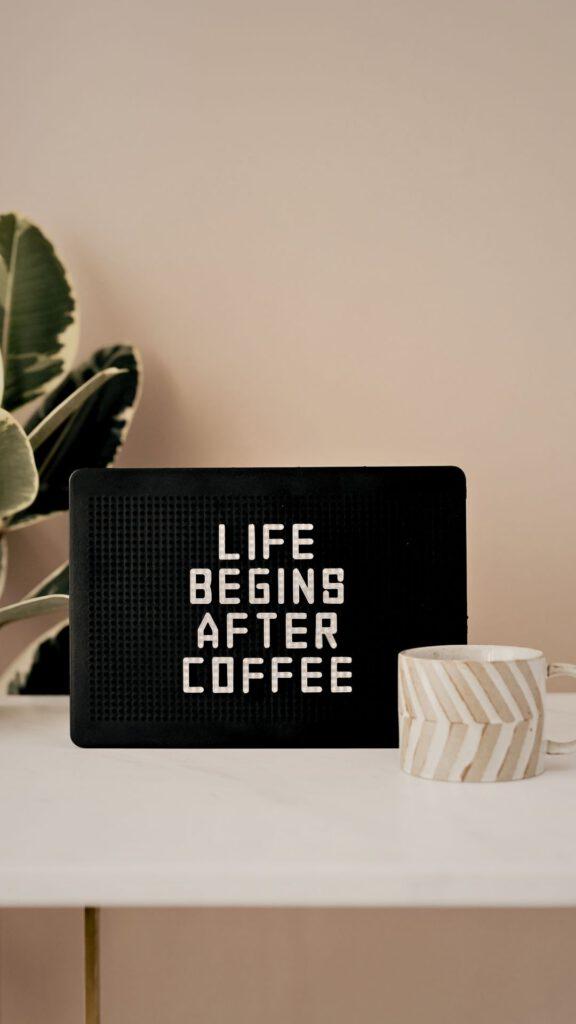Affiliate Disclosure
How much rest do you need?
Do you sometimes wonder if you have enough recovery time in your everyday life? You may often feel exhausted and tired. Maybe also regularly stressed and unmotivated? Or is the opposite the case with you? Are you bored more often, don’t know how to fill your free time and maybe even feel lonely? So what is the right balance between regeneration phases and productivity phases?
The legal situation in Germany
In Germany, legislation prescribes the following break regulation:
-> Up to 6 hours of working time, the employee is not entitled to a break. However, taking an unpaid break would not be prohibited, but the shift planning of most employers does not provide for this in the vast majority of cases.
-> From 6 hours of working time, the employee is entitled to a 30-minute break. These must be taken. If you are unlucky and you exceed your regular 6 hours of working time by 15 minutes, for example, because you may have been in the middle of a customer meeting, it can happen that the employer automatically deducts 30 minutes of unpaid break time. Of course, this should not be the case, but I know from my own experience that there are employers who do this regularly and who do not care at all that they do not remunerate employees for working hours.
-> From 9 hours of working time, the employee is entitled to a break of at least 45 minutes.
Break times are regulated in the Working Hours Act (ArbZG).
Are these break times enough?
Someone who regularly works 8 hours usually takes his break about halfway through his working hours. In other words, after about 4 hours of work, he already takes a 30-minute break. Or: The break time is divided again and you take a 15-minute break after about 2.5 hours each. However, if you have a part-time job and work 30 hours a week, 6 hours shifts every day, then you don’t have a break at all. Working productively and efficiently for 6 hours at a time is not that easy.
Short breaks promote health
Depending on what activity you do. If you have a desk-only job, there are some employers who recommend employees to exercise for about 5 minutes per hour and get some fresh air. So you know that this is actually essential for the health of employees.
Nevertheless, this is promoted by very few employers today. On the contrary. What is still completely normal in Germany is the regular smoking break. Disappearing 1-2 times an hour for 5-10 minutes in front of the door is widely accepted and must also be tolerated by non-smoking colleagues, who, however, are not allowed to take a short break during working hours.
Those who already lead an unhealthier lifestyle are sometimes rewarded for it. Because with 8 hours of working time, this behavior easily adds up to 80 or more minutes of paid break times! The smokers among you will probably feel attacked now. I have experienced discussions about this several times in the past more than 10 years. Because I know both sides. Until about 11 years ago, I smoked regularly myself. I hope you don’t take this realization as an opportunity to start smoking yourself. But I think this inequality in the workplace should stop urgently. First of all, 5-10 minute breaks per hour should be normal. It is important to exercise or rest regularly if you otherwise report physically demanding work. The brain also needs short breaks in order to be able to move what has been “learned” from the main memory to another part, so to speak. You often don’t notice how depleted the air in the office may have become. Especially in the home office, where you certainly do not have a modern ventilation system installed, regular ventilation is important.
Do we need breaks or just more freedom?
A few years ago, some companies also realized that more fun, exercise and generally more variety and balance to productive phases would increase the productivity and efficiency of employees. It has become a real trend among start-ups, especially in the tech industry, to integrate different types of fitness and leisure offers in their office buildings.
Over the years, however, it became apparent that the more performance-oriented employees made little or no use of these offers and that the less performance-oriented employees used them too excessively, i.e. were hardly productive. Too much freedom in everyday working life for most people, unfortunately too little productivity. This is also a reason why many people are not successful in self-employment, be it professionally or in the form of distance learning. They need a certain authority that encourages them to be disciplined. Whereas, on the other hand, they cannot cope well with it at all and can work and learn much more efficiently if they can organize their working hours more freely.
Some employers also give their employees a fixed amount of time for personal development. However, I also know this mainly from tech and IT companies. It’s not really a break, of course, but it’s at least a change from everyday work. However, whether you will actually manage to use this time quota in the end is another question. In my experience, these companies are more “fast pace envirenments” and you never really have the opportunity to take yourself out of the normal day-to-day activities for personal development.
Result
How much rest you need in everyday life and whether the break times and regulations in Germany are sufficient probably depends very much on individual needs. However, the great importance of regeneration phases and productivity phases as well as the promotion of health through short breaks affects virtually everyone. While some companies have recognized that more fun, exercise, and balance can increase workers’ productivity and efficiency, too much freedom in their day-to-day work leads to less productivity for most. The bottom line is that it’s important to find a good balance between work and rest for yourself personally to promote both health and productivity.
How much break or recovery time is important to you? Do you have the feeling that you are getting enough quality rest from your everyday life? Let me know in the comments
I wish you a relaxing week.
All the best,
Christina
“There’s nothing you get used to as quickly as working slowly.”
Ernst R. Hauschka

Ich freue mich,
meine Neuigkeiten mit euch zu teilen!
Möchtet ihr Infos zu meinen neuesten Artikeln und den interessantesten Themen rund um Unternehmertum, Finanzen, Immobilien und Persönlichkeitsentwicklung direkt in eure Mailbox bekommen?
Dann meldet euch für meinen Newsletter an!
Ich würde euch gerne auf dem Laufenden halten.
About the author

Christina Ernst is the founder and CEO of Linen & Quince. She is also a designer, writer and real estate expert. She shares her experience and knowledge not only in her personal blog on christinaernst.net , where she writes about financial literacy, business start-ups, real estate knowledge and personal development, but also on our Linen & Quince blog. There she regularly writes about interior design, fashion and lifestyle topics. She loves interior design, art, antiques as well as elegant, sustainable and high-quality fashion.



